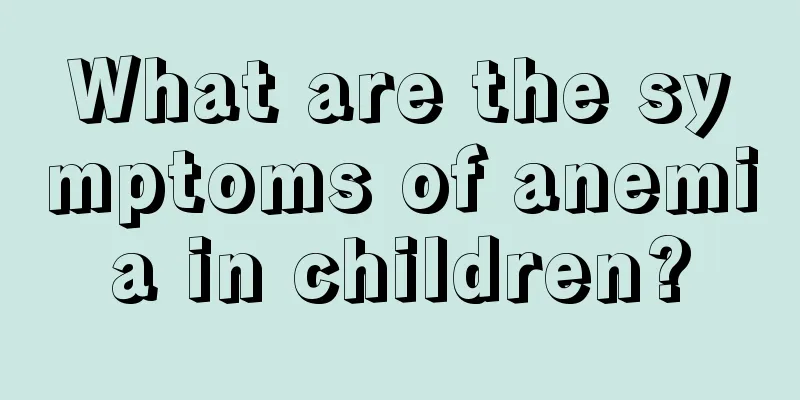What is going on with a hole in the baby's heart?

|
Today's society is constantly progressing, and many things are also constantly changing. There are more and more diseases that plague everyone, especially some babies who are more prone to problems due to their poor physical constitution. In recent years, many babies have heart problems, which prevents many children from living a normal life. This is a question that makes many parents very sad. They want to know what is going on when a baby has a hole in his heart? 1. It may be congenital heart disease. Congenital cardiovascular disease is the most common type of congenital malformations. Congenital heart disease refers to local anatomical abnormalities caused by impaired formation of the heart and large blood vessels during the human embryonic development period (within the first 2-3 months of pregnancy), or the failure of the heart to close the channels that should close automatically after birth (normal in the fetus). Except for a few small ventricular septal defects that have a chance to heal by themselves before the age of 5, most of them require surgical treatment. Mild cases are asymptomatic, and physical examinations reveal that severe cases may have difficulty breathing after activity, cyanosis, syncope, etc., and require surgical treatment. Currently, this surgery is relatively mature, and it is recommended to be hospitalized as soon as possible. 2. It is not just the heart of premature babies that is underdeveloped, all the organs in the body are underdeveloped. Therefore, premature babies need intensive care and feeding. To enable it to grow and develop as quickly as possible. If there are developmental defects, they should be actively treated. 3. Children’s congenital heart disease should have no effect on vaccines, and subsequent vaccines can be administered. Arterial duct occlusion can usually heal on its own. If it cannot heal on its own, interventional treatment is the best option. Patent ductus arteriosus is a disease in which the channel for blood to flow from the pulmonary artery to the aorta during fetal development (the ductus arteriosus, which should have closed after birth) fails to close for some reason. Patent ductus arteriosus is a common congenital heart disease in infants, accounting for about 15% of congenital diseases. It is more common in females than in males. Patent ductus arteriosus may occur in combination with other congenital heart diseases. The cause of patent ductus arteriosus is unknown, but some children with patent ductus arteriosus can close on their own one year after birth. Congenital heart disease is mainly caused by the incomplete development of the heart part of the fetus when it is developing in the mother's body. As the saying goes, it has not grown well. Some congenital heart diseases, such as patent ductus arteriosus and atrial septal defect, can heal themselves after the child is born, but generally they have to be healed by 5-6 years old. Everyone knows what happened with the baby having a hole in his heart. Parents must check their children promptly when they are just born to ensure that the disease is discovered and treated in time. At the same time, parents also need to pay careful attention to children's diet and daily life care. |
<<: Causes of premature heartbeats in infants
>>: Symptoms of an enlarged heart in babies
Recommend
What is the reason for the loose stool of the three-month-old baby?
While the baby's continuous growth brings end...
Occult blood in newborns
If there is occult blood in the newborn's sto...
Can drinking milk help you grow taller at the age of 16?
Many people usually drink milk, and they drink mi...
What are the effects of small intestinal prolapse in children?
We all know that children are still in the develo...
What is the solution for eczema in children?
Young children's immunity is not yet fully de...
Why is my child's lips swollen?
As children grow up, what parents worry about mos...
The child complained of chest pain
Children are very active, so sometimes they get b...
What is the cause of aplastic anemia in children?
Aplastic anemia is a very common type of anemia. ...
What to do if children have allergic rhinitis?
Children generally have poor resistance, so they ...
What are the reasons why children have poor sleep?
The baby's poor sleep is a headache for many ...
What causes baby sweating?
Many children are born with a weak constitution. ...
What’s going on if my baby has white spots on his throat and a fever?
When many babies are very young, they may often g...
How to deal with perihilar inflammation in children?
Papillomavirus is an epitheliotropic virus that i...
Can the anti-hunchback correction belt correct children's hunchback?
Nowadays, there are a lot of people with hunchbac...
What are the symptoms of chronic pharyngitis in babies?
When we suffer from pharyngitis, our throat will ...









